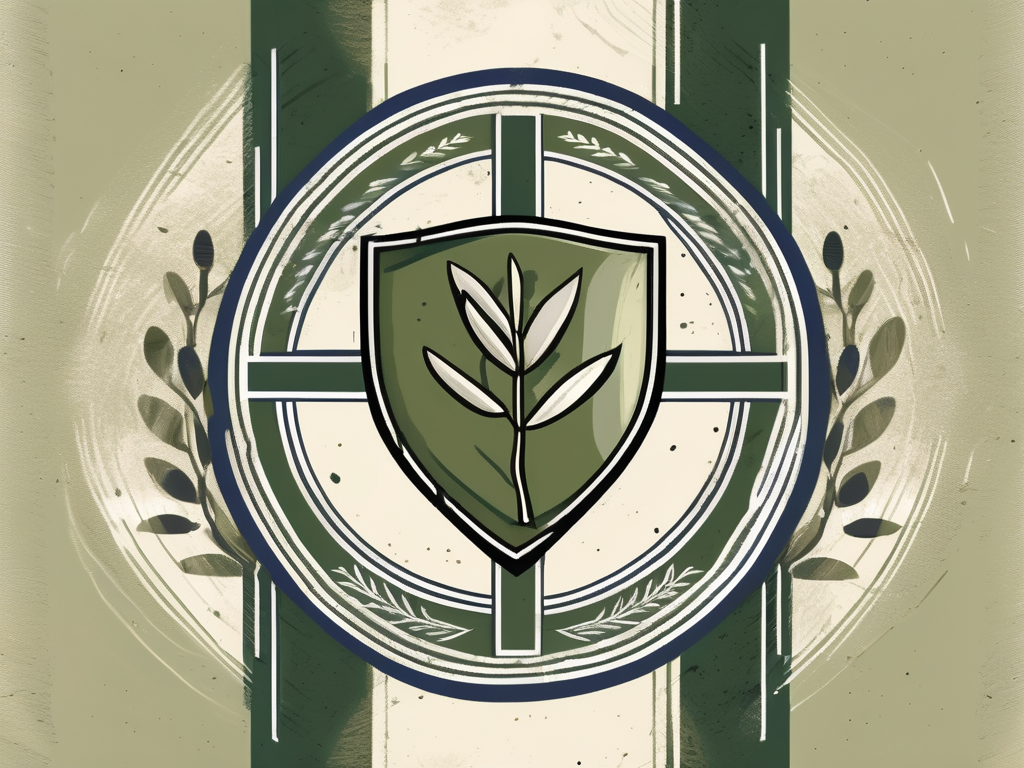Self-defense is a topic that has been debated among Christians for centuries. Some argue that it is justified to protect oneself and loved ones, while others believe that turning the other cheek and showing forgiveness is the only path to follow. So what does the Bible say about self-defense? Let’s explore this question together.
Understanding the Concept of Self Defense in Biblical Context
In order to grasp the Bible’s perspective on self-defense, it’s important to consider the historical and cultural context of the scriptures. The Old Testament and the New Testament provide different insights and teachings on this matter. Let’s dive into each of these sections individually.
The Old Testament and Self Defense
In the Old Testament, self-defense was often seen as a means of protecting oneself and others from harm. Numerous accounts of battles and conflicts can be found, where individuals defended their communities against enemies. However, it is essential to remember that these examples occurred within specific historical contexts and were not necessarily prescriptive for all situations.
One example of self-defense in the Old Testament can be found in the story of David and Goliath. David, a young shepherd boy, defended himself and the Israelites by taking down the giant Goliath, who threatened to conquer and harm their community. This story showcases the bravery and faith of David, who relied on God’s strength to overcome his adversary.
Another instance of self-defense in the Old Testament is seen in the story of the Israelites’ exodus from Egypt. As they journeyed through the wilderness, they faced numerous threats from hostile nations. In these situations, the Israelites defended themselves and their families, relying on God’s guidance and protection.
It is important to note that while self-defense was practiced in the Old Testament, there were also teachings on seeking peace and reconciliation. The prophet Isaiah, for example, spoke of a future where swords would be beaten into plowshares, signifying a time of peace and harmony.
The New Testament and Self Defense
In the New Testament, Jesus teaches a radically different approach to self-defense. The focus shifts from physical protection to spiritual and emotional well-being. Jesus emphasizes forgiveness, non-violence, and showing love even to one’s enemies.
Jesus’ teaching of turning the other cheek is one of the most well-known passages discussing self-defense in the New Testament. It encourages followers to respond to aggression with kindness and to overcome evil with good. This teaching challenges the traditional understanding of self-defense, urging believers to prioritize love and mercy over retaliation.
Furthermore, Jesus’ own example of self-sacrifice on the cross demonstrates his commitment to non-violence and forgiveness. Despite facing unjust persecution and violence, Jesus chose to endure suffering rather than resorting to self-defense. His ultimate act of love and forgiveness serves as a powerful example for his followers.
While the New Testament emphasizes non-violence, it does not completely negate the concept of self-defense. In the book of Acts, for instance, the apostle Paul exercised his legal rights as a Roman citizen to protect himself from unjust punishment. This demonstrates that self-defense can be considered within the bounds of the law and in specific circumstances.
In conclusion, the Bible provides various perspectives on self-defense, reflecting the different historical and cultural contexts of the Old and New Testaments. While the Old Testament showcases instances of self-defense, the New Testament emphasizes non-violence and forgiveness. Understanding these teachings can help believers navigate the complexities of self-defense in light of their faith.
Biblical Verses Related to Self Defense
Let’s take a closer look at some key Bible verses that are often referenced in discussions about self-defense.
When exploring the topic of self-defense in the Bible, it is important to delve into the interpretation of these verses, which may vary among different theological traditions and scholars. Some argue for a more literal understanding, while others emphasize the underlying principles and values.
A verse frequently discussed in relation to self-defense is Exodus 22:2-3, which states, “If a thief is caught breaking in at night and is struck a fatal blow, the defender is not guilty of bloodshed.” This verse has been used to support the idea of self-defense in certain circumstances. However, it is crucial to consider the contextual analysis of this verse and its surrounding passages.
Context is crucial when interpreting these verses. It is important to consider factors such as the specific audience, cultural norms, and the overall message of the surrounding passages. By examining the historical and cultural context of the time, we can gain a deeper understanding of the intended meaning behind these verses.
One verse that provides valuable insight is Romans 12:19, which advises believers, “Do not take revenge, my dear friends, but leave room for God’s wrath.” This verse underscores the call to rely on God’s justice rather than seeking personal vengeance. It reminds us that our ultimate trust should be in God’s sovereignty and His ability to bring about justice in His perfect timing.
Furthermore, it is important to consider the broader teachings of Jesus Christ, who emphasized love, forgiveness, and turning the other cheek. In Matthew 5:39, Jesus says, “But I tell you, do not resist an evil person. If anyone slaps you on the right cheek, turn to them the other cheek also.” This teaching challenges us to respond to aggression with love and non-violence.
While the Bible does provide some guidance on self-defense, it is essential to approach these verses with humility and discernment. The principles of love, forgiveness, and seeking God’s justice should always guide our actions, even in situations where self-defense may be necessary.
As we navigate discussions about self-defense in light of biblical teachings, let us remember to approach the topic with open hearts and minds, seeking wisdom and guidance from God’s Word.
Theological Perspectives on Self Defense
Christian denominations have varying views on self-defense, reflecting diverse theological perspectives.
When it comes to the topic of self-defense, scholars and religious leaders from different Christian denominations have presented contrasting ideas. The spectrum of opinions ranges from those who endorse the use of force for protection to those who advocate for non-violent approaches even in the face of danger.
Understanding the teachings of your specific denomination and engaging in discussions with fellow believers can provide valuable insights into their perspectives on this topic. It is through these conversations that you can gain a deeper understanding of the theological nuances that shape their views.
Different Christian Denominations’ Views
Within the vast landscape of Christianity, various denominations hold different views on self-defense. For example, some denominations emphasize the importance of self-preservation and protecting others, believing that the use of force may be necessary in certain situations. They argue that it is our responsibility to safeguard the well-being of ourselves and those around us.
On the other hand, there are Christian denominations that prioritize non-violence and advocate for peaceful resolutions even in the face of aggression. They draw inspiration from the teachings of Jesus, who preached love, compassion, and forgiveness. For them, turning the other cheek is not just a metaphorical concept but a practical approach to conflict resolution.
It is fascinating to explore the rich tapestry of theological perspectives within Christianity. The diversity of opinions reflects the complexity of the human experience and the different ways in which individuals interpret and apply scripture to real-life situations.
The Role of Forgiveness and Turn the Other Cheek
Forgiveness and the concept of turning the other cheek are central to Christian teachings. Jesus taught his followers to respond to aggression with love and forgiveness, urging them to overcome evil with good.
Some argue that these principles should guide our response to aggression, advocating for non-violence and trust in God’s justice. They believe that by embodying forgiveness and turning the other cheek, we can break the cycle of violence and promote healing and reconciliation.
However, it’s important to recognize that forgiveness and self-defense are not mutually exclusive. While forgiveness is a cornerstone of Christian faith, it does not mean that one should passively accept harm or allow others to suffer. Personal safety and protecting others can be balanced with the teachings of forgiveness and non-violence.
It is crucial to approach the topic of self-defense with sensitivity and respect for differing theological perspectives. Engaging in open and thoughtful discussions can foster a deeper understanding of the complexities surrounding this issue and help individuals navigate the moral and ethical dilemmas it presents.
Self Defense and Christian Ethics
When considering self-defense, Christians face ethical questions that require careful reflection and examination of personal values.
Balancing Love for Neighbor and Self-Protection
Christian ethics emphasizes the importance of loving our neighbors as ourselves. This raises the question of whether self-defense is compatible with this commandment.
While protecting oneself and others from harm can be seen as an act of love, it is essential to not let fear and aggression dictate our actions. Finding a balance between self-preservation and the well-being of others is crucial.
One way to approach this issue is by considering the concept of “just war” in Christian tradition. Just war theory allows for the use of force in certain circumstances, such as defending innocent lives or protecting the common good. Applying this principle to self-defense, Christians can argue that using force to prevent harm to oneself or others can be morally justifiable.
However, it is important to note that the intention behind self-defense matters. Acting out of a desire for revenge or with excessive force goes against the principles of Christian love and forgiveness. Christians should strive to approach self-defense with a mindset of seeking justice rather than retaliation.
The Morality of Using Force in Defense
The morality of using force in self-defense is a complex issue. It requires individuals to evaluate the intentions behind their actions and the proportional use of force.
Christians should approach self-defense with a mindset of seeking justice rather than revenge. It is essential to exhaust all non-violent avenues before resorting to physical force.
When faced with a potential threat, Christians can consider alternative methods of self-protection that prioritize de-escalation and conflict resolution. This may involve verbal communication, seeking help from authorities, or removing oneself from the dangerous situation.
Furthermore, Christians can also explore non-lethal means of self-defense, such as pepper spray or self-defense classes, as a way to protect themselves without causing severe harm to others.
Ultimately, the decision to engage in self-defense requires a careful examination of personal values, a deep understanding of Christian ethics, and a commitment to acting in a manner that upholds the principles of love, justice, and the preservation of life.
Practical Implications for Christians Today
So, how do these teachings translate into practical implications for Christians in today’s society?
Applying Biblical Teachings in Modern Society
Applying biblical teachings on self-defense should involve a thoughtful and prayerful discernment process. It is crucial to consider personal circumstances, legal requirements, and individual gifts and abilities.
When it comes to self-defense, Christians can draw inspiration from the story of David and Goliath. David, a young shepherd boy, used his skills with a sling to defeat the giant Goliath and protect his people. This story teaches us that God can equip us with the necessary tools and abilities to defend ourselves and others when faced with danger.
Seeking guidance from spiritual leaders and engaging in open dialogue with fellow believers can help navigate the complexities of this issue. By discussing different perspectives and seeking wisdom from those with experience, Christians can gain a deeper understanding of how to apply biblical teachings on self-defense in their own lives.
Personal Safety and Christian Responsibility
Christians have a responsibility to protect and care for themselves and others. Personal safety is not antithetical to faith; rather, it is an expression of valuing God’s gift of life.
While the New Testament emphasizes forgiveness and non-violence, it also acknowledges the need for self-preservation. In the book of Acts, the apostle Paul escapes from a city by being lowered in a basket through a window. This demonstrates that there are times when it is appropriate for Christians to take measures to ensure their safety.
Understanding one’s limits, seeking self-defense training, and being aware of potential dangers are ways in which Christians can responsibly approach the topic of self-defense. By being proactive in learning self-defense techniques and staying informed about personal safety, Christians can be better equipped to protect themselves and others in dangerous situations.
Additionally, Christians should not only focus on physical self-defense but also on protecting their mental and emotional well-being. This can involve setting healthy boundaries, seeking counseling or therapy when needed, and surrounding themselves with a supportive community.
In conclusion, the Bible’s teachings on self-defense are nuanced and multifaceted. While the Old Testament shows examples of self-defense, the New Testament emphasizes forgiveness and non-violence. Christian perspectives on self-defense vary among denominations, with some endorsing self-defense while others advocate for non-violence. Ultimately, it is crucial to approach this topic with careful consideration of biblical principles, personal circumstances, and our responsibility to love and protect others.












